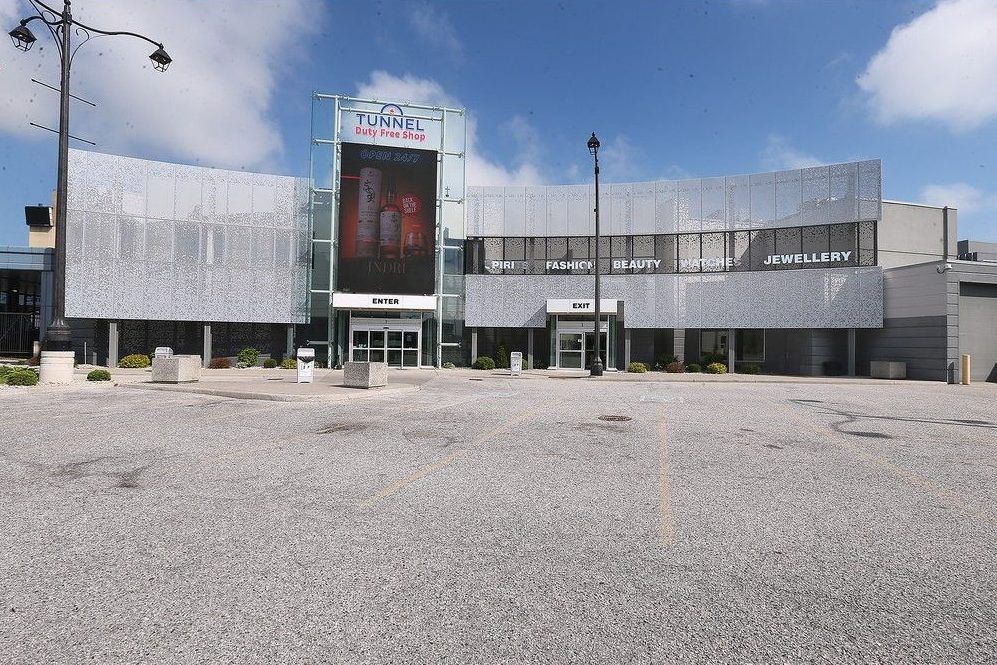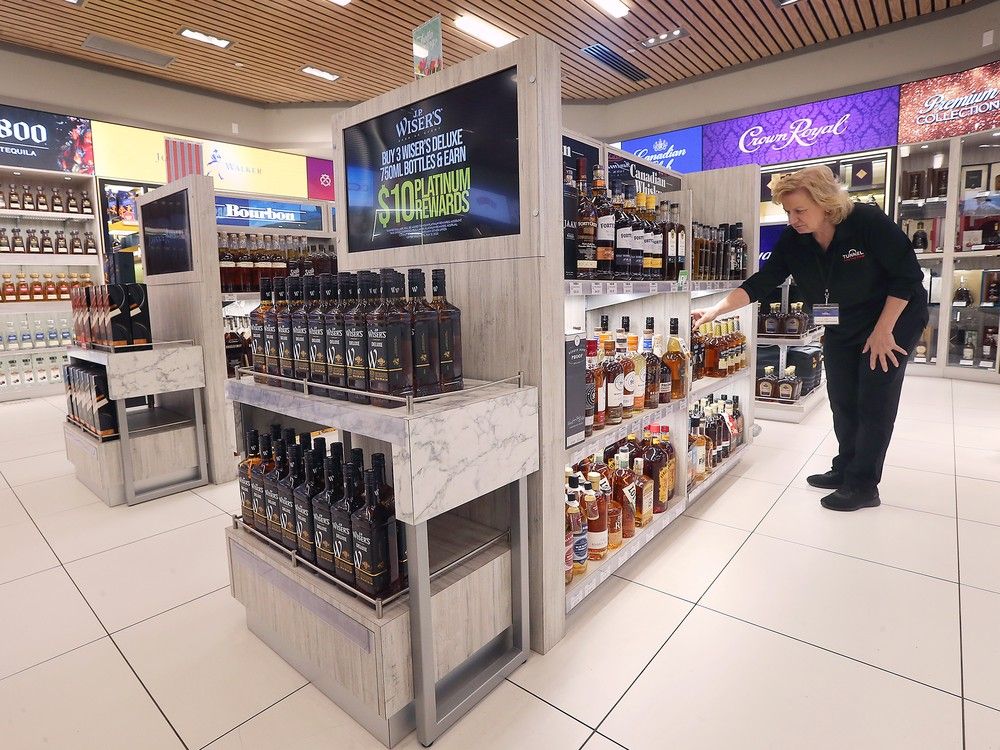As more Canadians think twice about U.S. travel amid ongoing cross-border trade friction, a Windsor duty-free store is among many others feeling the pain.
Abe Taqtaq, owner of Tunnel Duty Free at the Windsor-Detroit Tunnel, told the Star that store sales nosedived 25 to 30 per cent in February after U.S. President Donald Trump threatened tariffs against Canada and other countries. Taqtaq said foot traffic has since shown no signs of improvement.
“It was almost an immediate impact,” said Taqtaq.
We’ve had to adjust our staff numbers, which is unfortunate, but we’re taking all possible measures to retain as much of the team as we can. It’s unclear for how much longer this will be sustainable.
Land borders across the country are witnessing a drop-off in Canadians heading south. In March, the latest Statistics Canada numbers showed 1.5 million Canadians returned by car from the U.S. — down nearly 32 per cent from a year earlier.
That downward trend also hit Windsor.
February crossings to Michigan fell by 80,000 after Trump’s tariffs took effect. Though motorists crossing either the
Ambassador Bridge or Windsor-Detroit Tunnel into Michigan rebounded by 93,000 in March,
it remained well below 2024 figures by about
84,000 fewer
travelers.

According to Taqtaq, even the Canadians who do make the trip are steering clear of the duty-free store altogether, out of fear they’ll face extra scrutiny or tariffs when entering the U.S.
The Star reached out to Ambassador Duty Free on Wednesday morning but did not receive a response ahead of the paper’s print deadline.
Duty-free retailers are among the Windsor-area businesses most vulnerable to the ripple effects of Trump’s tariffs, alongside key sectors like manufacturing, automotive, and agriculture. The U.S. ,Canada’s largest trading partner, accounts for 90 per cent of the city’s exports.
But duty-free retailers face a unique challenge, said Taqtaq.
“Duty-free shops in Canada are 100 per cent dependent on individuals crossing into the United States,” he explained. “There’s no other way about it. We can’t sell domestically. We can’t do mail order. We can’t do internet sales. The people have to come into our store, purchase the product, and physically go into the United States. There’s very little we can do to pivot.”
The latest downturn in cross-border travel, he said, has proved especially challenging because the store has yet to fully recover from the financial fallout of the COVID-19 pandemic.
“COVID was worse because it was a complete shutdown of the border,” said Taqtaq. “We had to close our store. So, for a period of time, we had to cut shifts and things like that. We never did fully recover after COVID. We were still plying our way back to 2019 numbers last year. We were hoping that this year would be the year that we finally got back to 2019 numbers.
But if we hadn’t experienced COVID just a few years back, we might likely be able to get through this challenge too. It’s merely the double blow. We began recovering last year, and then came the impact.
—
this happened again.”
He mentioned that currently, there isn’t a federal initiative aimed at assisting duty-free sellers who face challenges due to instability at the borders.
“Often, we find ourselves pushed aside and aren’t included in those assistance programs,” he stated. “This was evident during the COVID-19 pandemic.”

The Frontier Duty Free Association (FDFA), representing Canada’s border retail businesses, appealed to the country’s political parties in April prior to the federal election for immediate assistance measures.
“These companies are facing a critical situation,” stated FDFA executive director Barbara Barrett at a press conference held in mid-April.
Stores at land borders for exporting goods operate completely as export enterprises. They depend solely on Canadians who cross into the United States.
“But now, with continued tariff threats, a dramatic decline in cross-border traffic, and inconsistent government treatment, they are being pushed to the edge.”
Barrett said without government support, one-third of duty-free shops in Canada could shutter within months, according to a recent industry survey.
As tariff issues were dampening US travel, the Peace Bridge duty-free shop – situated at Canada’s second busiest border crossing – entered receivership in April due to unpaid rent and significant financial debts.
Related
“If the government follows through on their commitments to sit down with the industries that are most affected by tariffs, I believe that our industry and other industries that have been affected will be around in the future,” said Taqtaq.
“If that’s not going to be done, we may lose some duty-free shops, and may end up closing permanently in the future — in the near future.”
mmazak@postmedia.com







